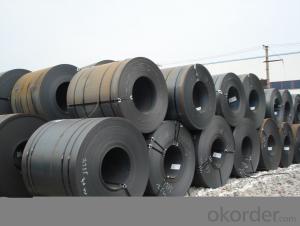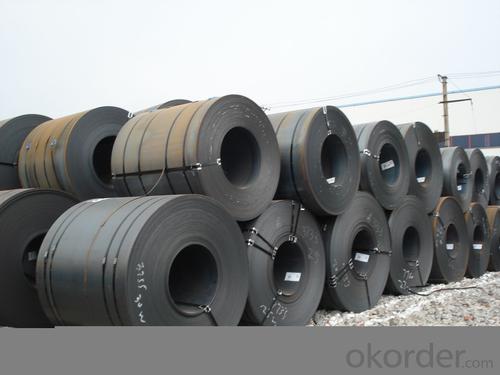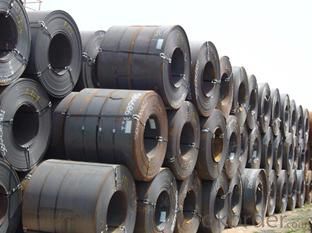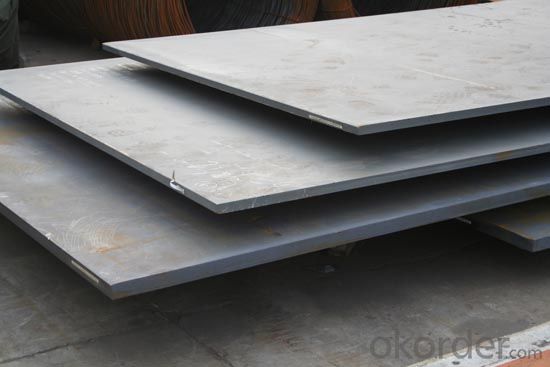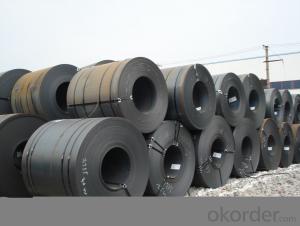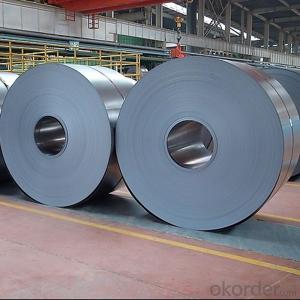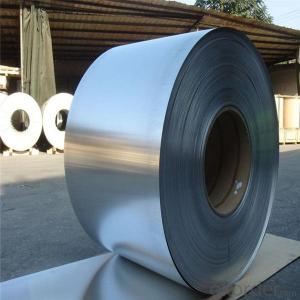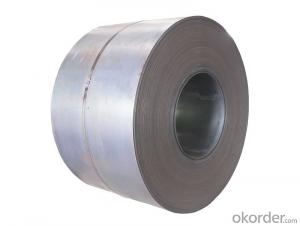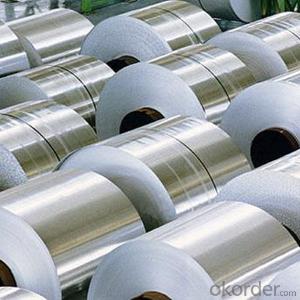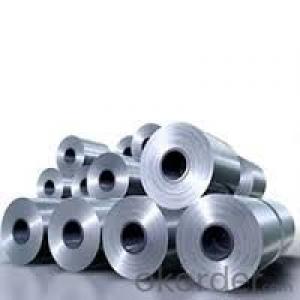Hot Rolled Steel Coils/Sheets
- Loading Port:
- China Main Port
- Payment Terms:
- TT OR LC
- Min Order Qty:
- -
- Supply Capability:
- -
OKorder Service Pledge
OKorder Financial Service
You Might Also Like
Product: | Hot Rolled Steel Coils/Sheets |
Material: | Q195,Q235,A36,SS400,S235JR,Q345,ST37-2, CCSB etc |
Standard : | JIS G3002 GB/T251B |
Technique: | hot rolled |
Thickness | 1.2mm to 200mm |
Tolerance of thickness: | :+/-0.03mm |
Width: | 750mm-2000mm |
Tolerance of width: | :+/-5.00mm (aiming to +/-2.00mm) |
Normal width: | 914mm, 1000mm, 1200mm, 1219mm, 1250mm,1500mm |
Length: | According to requirement |
Coil ID: | 508mm-610mm |
Coil Weight: | 10-25 Metric Tons |
Surface: | Black, Chromate, fingerprint resistant treatment, slight oiled or non-oiled, dry |
Port of Loading: | Tianjin/Shanghai port |
Packaging Details: | Standard export packing or according to the clients required |
Delivery Time | Within 30 days after received 30% deposit or workable L/C |
Payment Terms: | L/C,T/T |
|
|
- Q: What is the difference between a steel sheet and a steel plate?
- The differences between a steel sheet and a steel plate are significant. Firstly, the thickness of a steel sheet is typically less than 6mm, whereas a steel plate is generally thicker, measuring 6mm or more. This discrepancy in thickness is primarily attributed to the intended purpose of each product. Steel sheets are commonly used in scenarios where weight and flexibility are crucial, such as in the production of automobile bodies or appliances. Conversely, steel plates are frequently employed in heavy-duty constructions such as bridges, buildings, or machinery, where strength and durability are of utmost importance. Another distinction can be found in the manufacturing process. Steel sheets are usually created through hot rolling, which involves heating the steel above its recrystallization temperature and subsequently passing it between rollers to achieve the desired thickness. On the other hand, steel plates can be made through either hot rolling or cold rolling processes. Cold rolling entails passing the steel through rollers at room temperature, resulting in a more precise and smoother surface finish. Furthermore, the size of steel sheets and plates also differs. Steel sheets are often standardized in terms of width and length, making them more manageable and easier to transport. In contrast, steel plates are available in various sizes and dimensions, providing greater customization options to suit specific project requirements. To summarize, the key distinctions between a steel sheet and a steel plate lie in their thickness, manufacturing process, and intended use. Steel sheets are thinner and lighter, while steel plates are thicker and utilized in heavy-duty applications that demand strength and durability.
- Q: Can steel sheets be used for elevator shafts?
- Indeed, elevator shafts can utilize steel sheets. Steel, renowned for its durability, strength, and fire-resistant qualities, finds widespread application in the construction of elevator shafts. Typically, steel sheets are employed to form the walls and floors of these shafts, furnishing them with structural reinforcement and ensuring the safety of the entire elevator system. These sheets can be easily fabricated, allowing for precise tailoring to accommodate the specific dimensions and design prerequisites of the shaft. Moreover, various coatings can be applied to steel sheets to impede corrosion and bolster their longevity. Consequently, steel sheets represent a fitting choice for the construction of elevator shafts, providing a dependable and sturdy solution for vertical transportation systems.
- Q: How do steel sheets perform in cryogenic environments?
- Steel sheets perform well in cryogenic environments due to their low thermal expansion coefficient, high strength, and good ductility. At extremely low temperatures, steel retains its structural integrity, resists cracking or brittleness, and maintains its mechanical properties. This makes steel sheets suitable for various applications in cryogenic industries, such as liquefied natural gas (LNG) storage tanks, aerospace components, and scientific research facilities.
- Q: Are steel sheets suitable for cryogenic applications?
- Yes, steel sheets are suitable for cryogenic applications. Steel has excellent mechanical properties, including strength and toughness, even at low temperatures. It can withstand extreme cold without becoming brittle, making it a reliable material for cryogenic storage tanks, pipelines, and other equipment used in industries such as aerospace, energy, and healthcare. Additionally, steel sheets can be fabricated and welded easily, making them a cost-effective choice for cryogenic applications.
- Q: What are the different surface textures for galvanized steel sheets?
- There are several different surface textures for galvanized steel sheets, including smooth, spangled, matte, and diamond.
- Q: What is the process of etching designs on steel sheets?
- The process of etching designs on steel sheets involves applying a protective layer, known as a resist, on the surface of the steel. The resist is then selectively removed to expose the desired design. Next, the steel sheet is immersed in an acid solution that gradually etches away the exposed areas, creating the desired design. The depth and intricacy of the etching can be controlled by adjusting the duration of the immersion. Finally, the remaining resist is removed, leaving behind a beautifully etched design on the steel sheet.
- Q: Can steel sheets be painted after installation?
- Yes, steel sheets can be painted after installation. Painting steel sheets after installation is a common practice to enhance their appearance and protect them from rust and corrosion. However, it is important to ensure that the surface is clean and free from any contaminants before applying paint. Proper surface preparation, such as cleaning and sanding, is crucial to promote adhesion and ensure a long-lasting finish. It is also recommended to use a primer specifically designed for steel surfaces before applying the desired paint color. Additionally, selecting a high-quality paint that is suitable for exterior or industrial applications will help to provide the best results and durability.
- Q: What is the typical yield strength of a steel sheet?
- The typical yield strength of a steel sheet can vary depending on the specific grade and thickness of the sheet. However, on average, the yield strength of a steel sheet is typically between 250 and 400 megapascals (MPa).
- Q: How do steel sheets compare to other materials in terms of durability?
- Compared to other materials, steel sheets are widely acknowledged for their exceptional durability. The long-lasting nature of steel can be attributed to its unique qualities, including high tensile strength and resistance to corrosion. Unlike wood or plastic, steel sheets are not easily susceptible to wear and tear, making them the preferred choice for various applications that require durability. Construction projects, automotive manufacturing, and industrial applications all benefit from the ability of steel sheets to withstand heavy loads without bending or warping. Furthermore, steel sheets have a longer lifespan than other materials, reducing the need for frequent replacements and maintenance. In summary, the durability of steel sheets is unparalleled, making them a dependable and cost-effective option for many industries.
- Q: Are steel sheets suitable for railway infrastructure?
- Railway infrastructure can benefit greatly from the use of steel sheets. Steel is a popular choice for constructing railway infrastructure because it is strong, durable, and versatile. One of the main advantages of steel sheets in railway infrastructure is their high strength-to-weight ratio. Steel is exceptionally strong, allowing it to handle heavy loads and provide long-lasting support to railway tracks, bridges, and other structures. This strength is crucial for the safety and stability of the railway system, especially when dealing with the weight and impact forces exerted by trains. Furthermore, steel sheets offer excellent durability and resistance to wear and tear. Railway infrastructure is constantly exposed to stress, including vibrations, impacts, and extreme weather conditions. Steel's inherent properties make it highly resilient to these factors, reducing the need for frequent repairs and maintenance. This durability leads to significant cost savings in the long run, as steel structures have a longer lifespan compared to other materials. In addition, steel sheets are highly versatile and can be easily shaped and sized to meet specific railway infrastructure requirements. This flexibility allows for the efficient construction of rails, sleepers, bridges, and other components necessary for a functional and safe railway system. Steel's adaptability also enables easy modifications and expansions to the infrastructure as needed, ensuring compatibility with changing transportation needs. To summarize, steel sheets are an excellent choice for railway infrastructure due to their strength, durability, and versatility. Their high strength-to-weight ratio, resistance to wear and tear, and ease of fabrication make them ideal for constructing and maintaining railway tracks, bridges, and other structures. The use of steel in railway infrastructure guarantees the safety, efficiency, and longevity of the railway system.
Send your message to us
Hot Rolled Steel Coils/Sheets
- Loading Port:
- China Main Port
- Payment Terms:
- TT OR LC
- Min Order Qty:
- -
- Supply Capability:
- -
OKorder Service Pledge
OKorder Financial Service
Similar products
Hot products
Hot Searches
Related keywords
